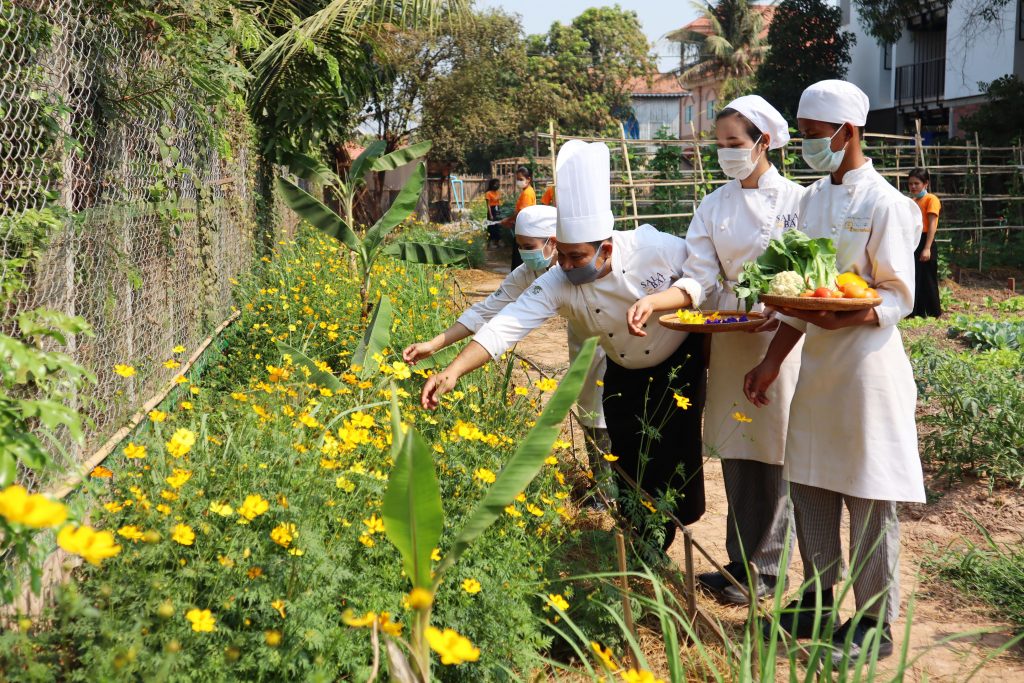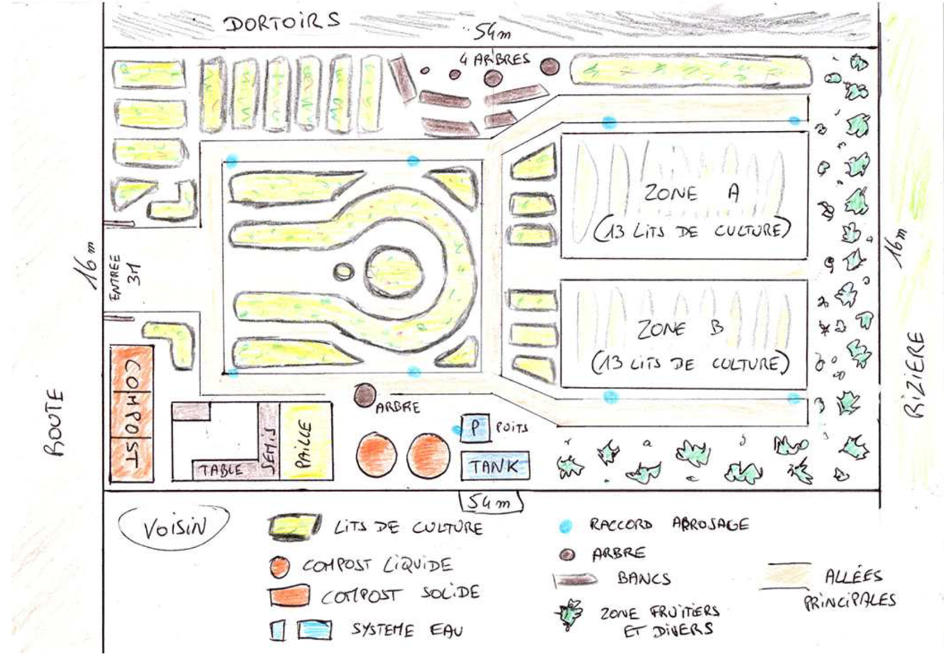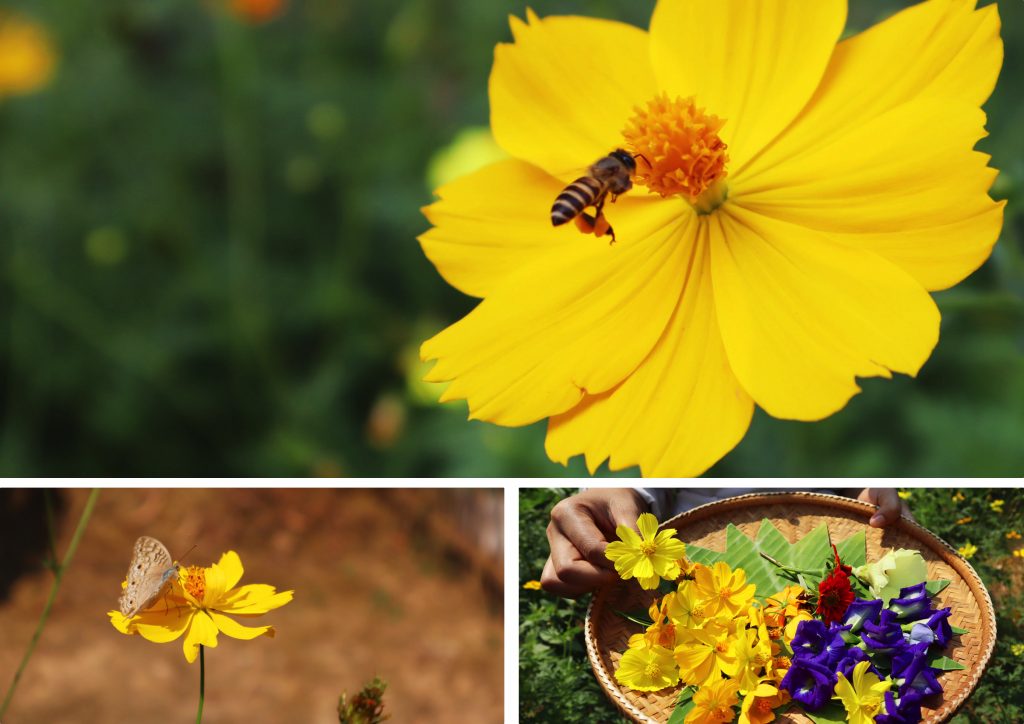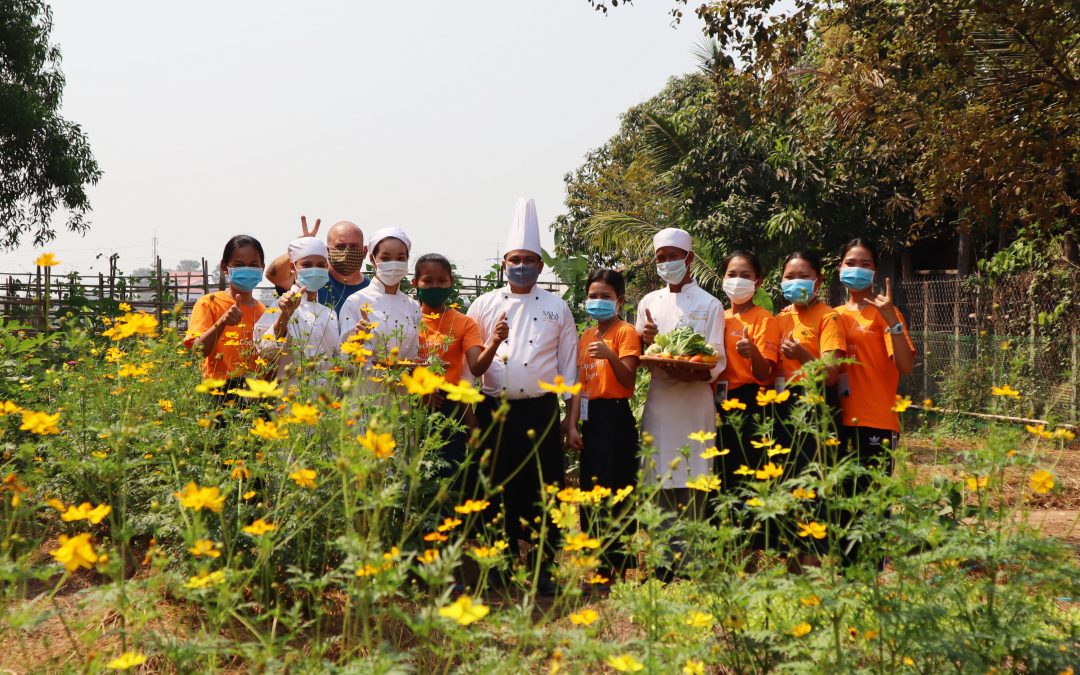Since December 2020, students have grown fruits, vegetables, and flowers in the school’s garden closed to the dormitories. The organic garden is now fully developed and the first vegetables have already been harvested and cooked for students’ dinners. Students’ hard work is literally bearing fruit!

To ensure a sufficient supply of food for every student, one section of the garden is dedicated to productive and fast-growing vegetables such as morning glory, long and square beans, gombos (a flowering plant from which fruits are harvested once green and are used as vegetables) and Cambodian eggplants.
Fruit trees were also planted (banana, papaya, and pineapple trees) but the students will have to be patient because the first fruits will not grow until next year! These plants will produce biomass for the compost used as a fertilizer for the garden.

The Cambodian NGO Camborea runs weekly workshops on agroecology and permaculture practices and their impacts on the environment and food quality. Students have also started to cultivate their own fields. Every students’ room (6 students per room) manages its own 5 sq.m plot. Students came up with a list of 10 vegetables to grow in their plots: cucumbers, peppers, and various cabbages including Bok Choy (Chinese cabbage).
The students have succeeded in developing a real ecosystem respectful of the environment. Flowers are growing in every alley and have a real function in the garden. They attract pollinator insects (bees and butterflies for example) that are essential for plants’ reproduction and the development of the garden.

Only untreated seeds were used. Students are following permaculture and agroecology methods in the choice of plants, space management, and make their own compost. Thus, students contribute to fighting soil and plant depletion, improving their food quality, and protecting local biodiversity. The students are actors for change for a sustainable world. They will be able to share their knowledge, the importance of agroecology, and raise awareness among their fellow Cambodians.
